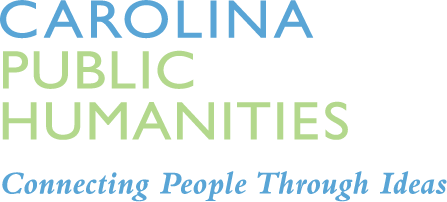2021-22 Maynard Adams Fellowship for UNC-Chapel Hill Graduate Students
2021-22 Fellowship for UNC-Chapel Hill Graduate Students
“The Maynard Adams Fellows for the Public Humanities”
Carolina Public Humanities (CPH) is pleased to announce the continuation of a fellowship for graduate students in the humanities, arts, and social sciences: “The Maynard Adams Fellowship for the Public Humanities.” This fellowship honors the distinguished philosopher Maynard Adams (1919-2003), who was a long-time professor at UNC-Chapel Hill and a prominent advocate for the value of the humanities in public life and in public education. He also strongly supported the creation of UNC’s Program in the Humanities and Human Values (now Carolina Public Humanities), which was established in 1979 to foster faculty engagement with people outside the University and throughout North Carolina. The Maynard Adams Fellowships, made possible by a generous gift from the Taylor Charitable Trust, exemplify this mission.
Duties and Benefits of the Fellowship Recipients: The Adams Fellows will join an interdisciplinary graduate workshop that will meet three times in the fall of 2021 (September 28, November 2, and December 7) and three times in the spring of 2022 (February 1, March 25-26, and April 5). The March meeting will be part of the annual Maynard Adams Symposium for the Humanities on March 25-26, which will feature the distinguished Harvard philosopher Tommie Shelby. Ten Fellows will be selected from disciplines in the humanities, Fine Arts, and Social Studies in which public engagement is important for graduate education and future careers. The Adams Fellows will be required to participate in conversations about short readings that explore the public role of the humanities. In addition, each fellowship recipient will be expected to develop a public outreach project or event. To facilitate the planning for these projects, fellowship recipients will workshop their ideas with the CPH Associate Director for State Outreach, Joanna Sierks Smith.
At the conclusion of the spring semester, Fellows will be required to submit brief (2 page) reports on their projects in order to reflect on successes, challenges, and lessons learned about publicly engaged scholarship.
The readings and discussions will focus on issues that were important to Maynard Adams and remain important in all democratic societies: the nature of philosophical truths, the importance of public education, the discussion of humanistic knowledge in the media and public debates, the development of human identities, and the value of the humanities for well-informed participation in contemporary political cultures. The Adams Fellows will also participate in the annual Adams Symposium in the spring semester and meet with the visiting keynote speaker, Tommie Shelby.
Stipend: Each Adams Fellow for the Public Humanities will receive a stipend of $2,000 (payable in two distributions) for reading the assigned materials, participating in the workshop/meal conversations, attending the Adams Symposium in the spring, and developing a public project or event, and will also receive an additional $250 stipend upon submission of a final project report. There are no fees for meals or reading materials; and there are no required papers, but Adams Fellows will be required to attend all meetings, develop a public project, and submit a brief final project report.
Applications: Graduate applicants must have completed at least one year of study in a discipline that includes scholarship and teaching in the humanities, social sciences and/or arts. Although philosophy will be one of the important fields, candidates in other disciplines are strongly encouraged to apply.
The following application materials are required:
- The applicant’s current CV.
- A statement from the applicant (up to 1,200 words or two single-spaced pages) that describes (1) why and how she/he/they has an academic interest in links between the humanities and public issues, or (2) why and how she/he/they thinks humanists and artists should engage with public audiences, or (3) why and how she/he/they plans to pursue a career with humanistic themes outside academia. Applicants may address any or all of these three themes in their statements.
In addition to this summary of interests and themes, the two-page application statement should briefly describe an outreach activity or event that the applicant envisions as a possible in-person or on-line public humanities project. This description could become the framework for a project in the coming year (including, for example, a collaboration with a community college, public school, museum or other institution). Applicants are encouraged to consider innovative approaches and new formats for public outreach.
- A one-page letter from the applicant’s graduate advisor, explaining why the Adams Fellowship for the Public Humanities would be valuable for the candidate and how this applicant might contribute to the workshop’s activities.
Applicant Selection Process: Applications are due by 5:00 PM on Monday, September 6, 2021; the applicant’s CV and statement of interest should be emailed as a pdf attachment to Dr. Max Owre at Carolina Public Humanities (owre@email.unc.edu). The letter from the faculty advisor should be submitted separately by the professor as a pdf attachment to the same email address. The Adams Fellowship Selection Committee will include faculty from various departments, and the Fellowship recipients will be announced by Friday, September 17, 2021.
Carolina Public Humanities helps to create a more humane world by fostering dialogues and new insights that emerge from the humanities. Our programs connect UNC scholars and people across North Carolina through collaborations with museums, theaters, bookstores, libraries, Community Colleges and K-12 teacher workshops. These collaborations take place in interdisciplinary weekend seminars, lecture series, bookstore talks, book reading groups, teacher workshops, and other public events.
Please share this information widely with graduate students and faculty.
A PDF version of this announcement is available here.

